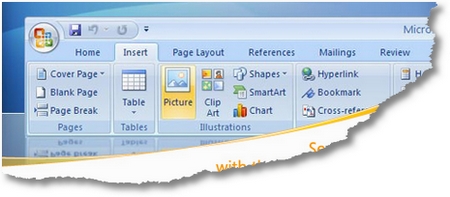There was a time after Microsoft Office had established its rule of the roost that its competitors in the Office Software market were reduced to hollow shells of what they had been. A good example, of course, would have to be the current product of WordPerfect Office, which has changed hands quite a few times. IBM’s alternative called LotusOffice. Many of these products still exist, but it’s been in recent years that the competition has started thriving again, as more and more products come to market.

1. OpenOffice started life as part of StarOffice, before being bought and made Opensource by Sun Microsystems. Now at version 2.2.1 and available on all major platforms in a variety of languages, it’s catching people’s attention. While it’s not on a par with Office 2007 in terms of usability, it’s priced well and many individuals and smaller organizations are adopting it in preference to M$ Office.
2. Apple’s iWork’08 has recently been announced (timed to pique M$’s own 2008 office edition?) and now includes a more traditional word processor view in its package, as well as presentation and even spreadsheet functions.
“Pages and Keynote make it incredibly easy, and even fun, for anyone to create stylish documents and presentations very quickly,” said Steve Jobs, Apple’s CEO. “Numbers rounds out the iWork suite, which is far more intuitive and easy to use than anything else out there.”
iWork’08 can also handle both the import of Microsoft Word, PowerPoint, and Excel documents as well as export documents in Microsoft Office file formats or PDFs to make easy sharing.
3. Google Apps recently updated and is developing its online offerings. While it’s not true that they were the first, think Groove, ThinkOffice, to name but two, they are aggressively developing their small business footing by starting off with the simpler functions. Rumor has it that Google is going to bump out its offerings with a Presentation Tool. The list of tools that you can use is now quite impressive, and many are the stuff of the modern ‘virtual’ company…
There are a plethora of offerings too in other places. I found 17 alternatives for Windows, and there are alternatives for other systems, too. So, whither M$? Are you sticking with Office or migrating? My own business is now running only two copies of Office, and we’ll soon be entirely using OpenOffice 2.2 and up in Chinese and English.
There were a number of primary motivating factors that prompted me to migrate.
1. price – the cost of running five copies of Office in our business is just too steep. Even with volume licensing, we wouldn’t get much of a break. If it were the case that this were the only issue, we’d still consider buying but…
2. licensing – I can’t be bothered to keep track of license numbers anymore. Why do the copies I legally purchased have to be installed and activated online? Isn’t it enough that I bought the copies with my own cash (legal ones, too?)? It seems to much like punishing your customers for the sins of the IP thieves… shouldn’t it be the other way around?
3. deployment – still it’s a hassle to deploy copies of Office across the systems we use, and the continual threats to Office from viruses, etc., really make me want to stay away from them. I can’t just set up one install, and then ghost everything. I have to install the applications EACH and everytime.
4. updating – I keep my products and systems fairly secure with virus scans, and checking for other infestations, but frequently having to download updates requires too much time, and too much hassle involving questions from staff members (‘should I install this?’ or ‘what’s going on?’).